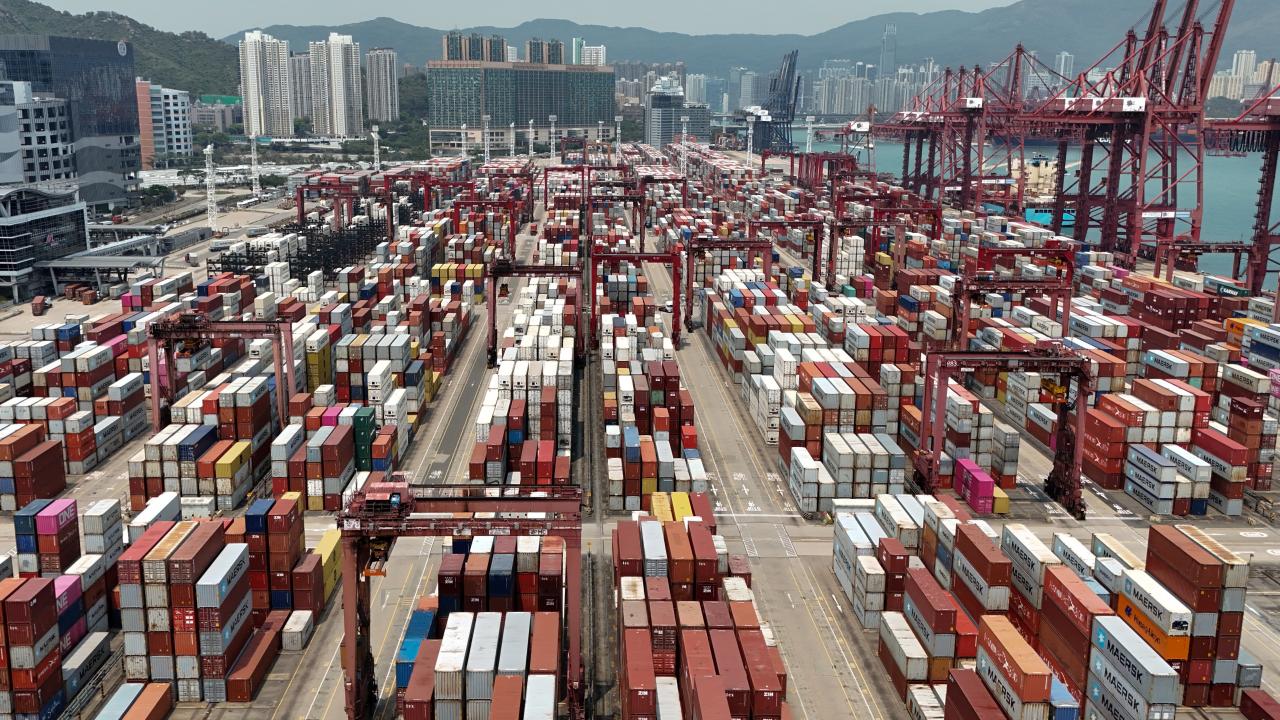
The Asian nation will impose additional tariffs of 34% on all U.S. products and restrictions on the export of some rare earths.
China announced additional tariffs of 34% on U.S. goods on Friday, the most serious escalation in a trade war with President Donald Trump that has fueled fears of a recession and sent global stock markets tumbling.
In the standoff between the world's two largest economies, Beijing also announced controls on exports of medium and heavy rare earths, including samarium, gadolinium, terbium, dysprosium, lutetium, scandium, and yttrium, to the United States.
It also added 11 entities to the "unreliable entities" list, which allows Beijing to take punitive measures against foreign entities.
Nations from Canada to China have prepared retaliation in an escalating trade war after Trump this week raised U.S. tariffs to their highest level in more than a century, sending global financial markets into a tailspin.
The White House was not immediately available for comment.
In Japan, one of the United States' main trading partners, Prime Minister Shigeru Ishiba said the tariffs had created a "national crisis," while a plunge in banking stocks on Friday led the Tokyo stock market to its worst week in years.
Investment bank JP Morgan said it now sees a 60% chance that the global economy will enter a recession by the end of the year, up from 40% previously.
Wall Street futures pointed to a lower open after the Trump administration's sweeping tariffs wiped $2.4 trillion off U.S. stocks the day before.
DIVISIONS AND CONTRADICTORY SIGNALS
With European stocks also on track for their biggest weekly plunge in three years, EU Trade Commissioner Maros Sefcovic will speak with his US counterparts.
"The EU will respond in a calm, carefully phased, and, above all, unified manner, while we calibrate our response," he said on social media. "We will not shoot from the hip: we want to give the negotiations every chance of success to find a fair agreement, to the benefit of both parties."
The EU is divided over how best to respond to Trump's tariffs, including the use of its "counter-coercion instrument," which allows the bloc to retaliate against third countries that exert economic pressure on it to change its policies.
Among the countries that are cautious about retaliating and thus escalating tensions in the confrontation with the United States are Ireland, Italy, Poland, and the Scandinavian countries.
However, the European Commission is trying to finalize a list of US imports worth up to €26 billion ($28 billion) to which retaliatory tariffs will be applied in response to US tariffs on steel and aluminum.
The Commission, which coordinates trade policy for the 27 EU members, has yet to determine how best to respond to the tariffs announced by Trump this week and an earlier announcement on auto levies.
French President Emmanuel Macron led the charge on Thursday by calling on companies to freeze investments in the United States.
"Upcoming investments or investments announced in recent weeks must be suspended until things are clarified with the United States," Macron said during a meeting with representatives of French industry.
However, French Finance Minister Eric Lombard later warned against countermeasures similar to the US tariffs, warning that this would also impact European consumers.
"We are working on a package of responses that can go far beyond tariffs, with the goal, once again, of bringing the United States to the negotiating table and reaching a fair agreement," Lombard said in an interview with BFM TV.
There were conflicting messages from the White House about whether the tariffs are intended to be permanent or a tactic to win concessions, with Trump saying they "give us great leverage to negotiate."
Tariffs could drive up prices for American buyers of everything from cannabis to sneakers to Apple's iPhone. A high-end iPhone could cost nearly $2,300 if Apple passes the costs on to consumers, according to projections from Rosenblatt Securities.
Companies have been quick to adapt. Automaker Stellantis said it would temporarily lay off US workers and close plants in Canada and Mexico, while General Motors said it would increase US production.
China is retaliating against Trump's 54% tariffs on imports from the world's second-largest economy. The EU faces a 20% tariff.
Other trading partners, including Japan, South Korea, Mexico, and India, said they would refrain from retaliating for now while seeking concessions. The UK Foreign Secretary said he is working toward an economic agreement with the United States.










